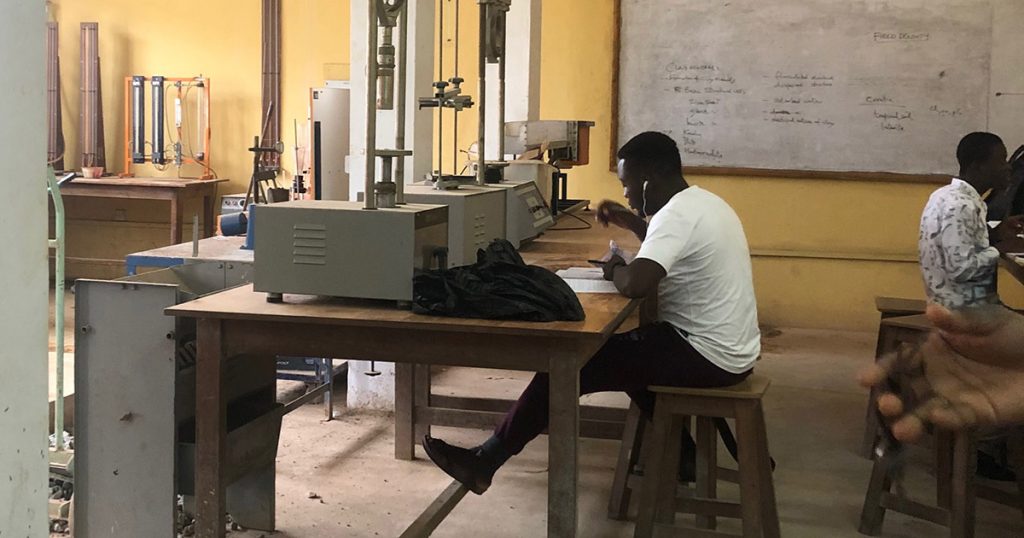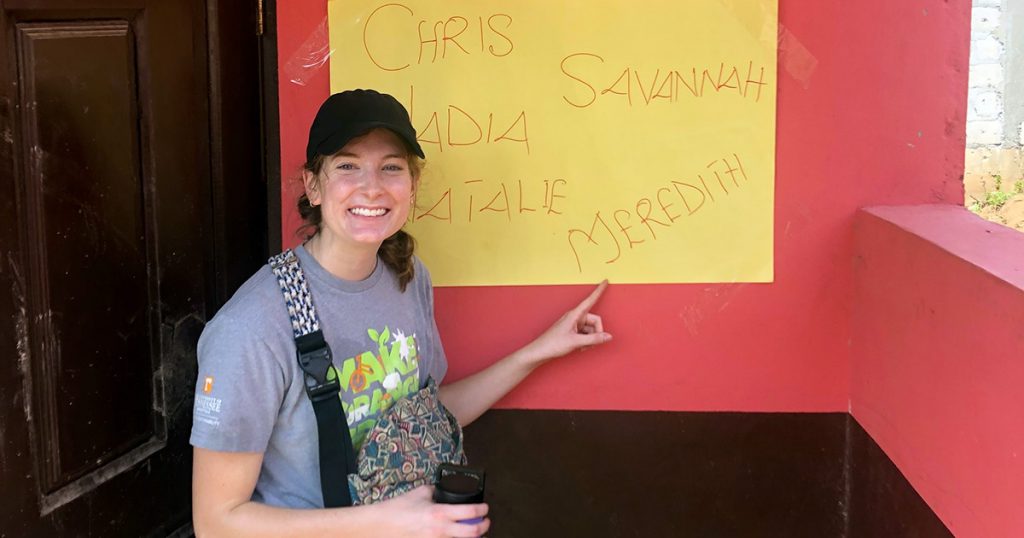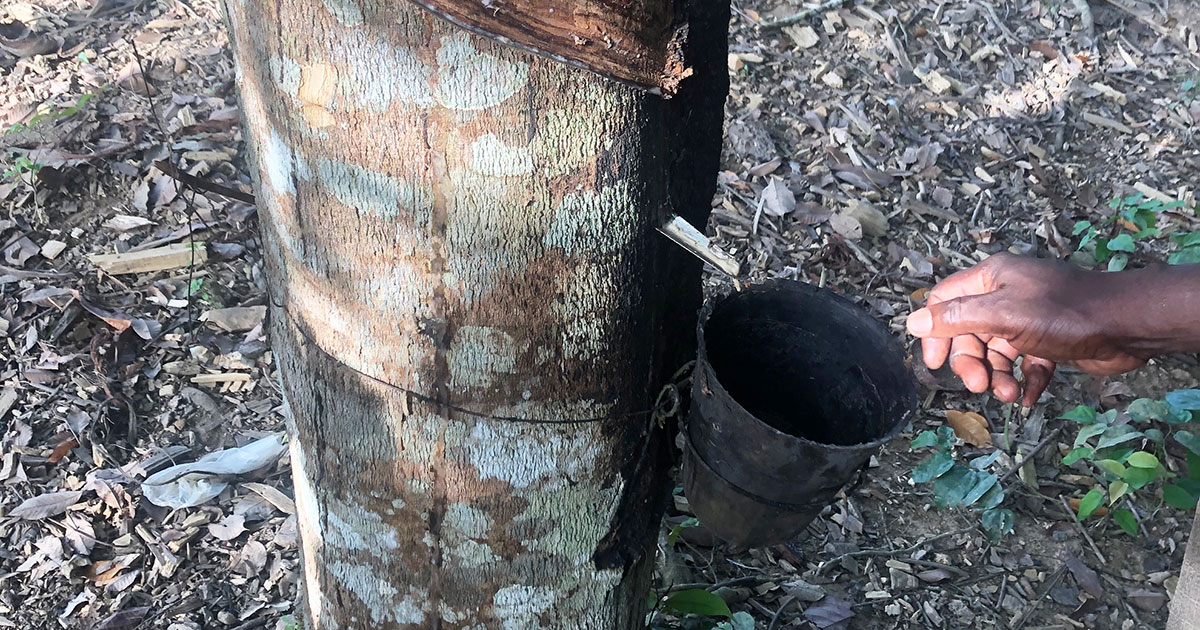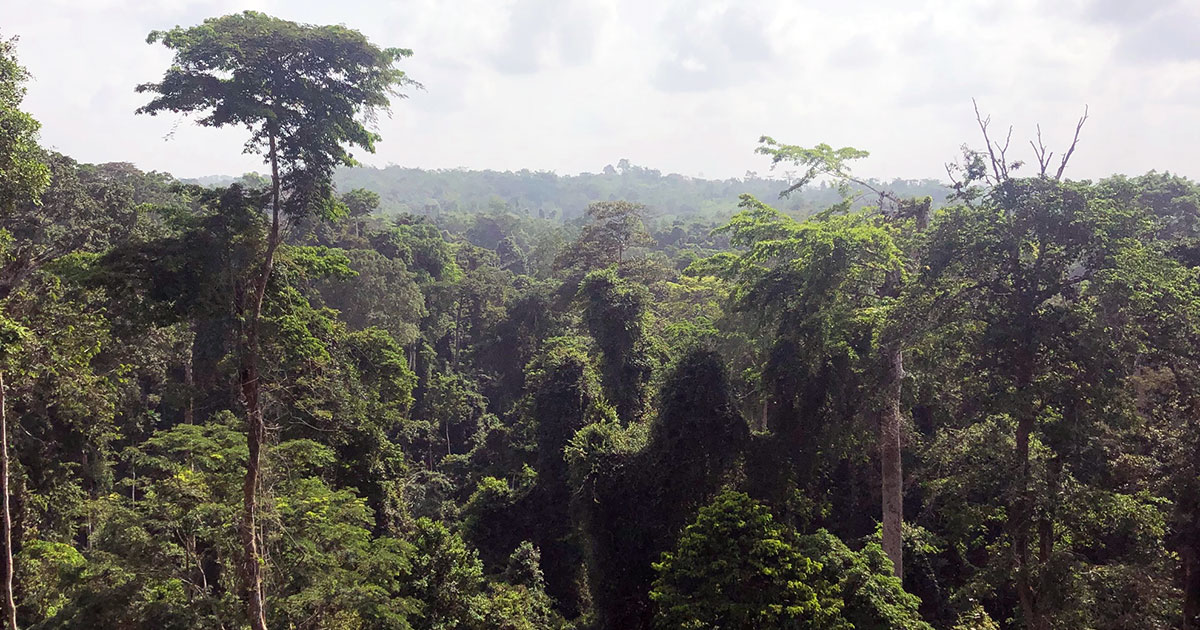Meredith King: Student Report from 2019 Alternative Winter Break to Ghana

I chose to embark on this trip to Ghana in a stroke of spontaneity; I saw an email advertising the trip, I noted that it fulfilled multiple requirements for the Chancellor’s Honors Program, and I thought, “Okay! Sounds cool!” As the day of departure drew nearer, the requirements of taking the trip began to pile up (multiple vaccinations, a visa, and a background check, just to name a few), and I became a bit apprehensive about what I was really getting myself into.
The flight from Washington DC to Accra was around nine hours. It was a bit jarring to go directly from temperatures below freezing in the states to Ghana’s hot and humid climate. We were immediately greeted by our in-country coordinators, who were the friendliest and most hospitable people with whom we could have worked. Our initial fears and anxieties quickly subsided knowing that we were in such good hands.
We took a three-hour van ride from Accra to Cape Coast, and along the way I noticed how different transportation in Ghana is compared to the United States. Ghanaians travel primarily by car, but traffic laws are seldom enforced. Often times, especially through the markets in Cape Coast, roads were very narrow, but traffic would still flow both ways. Because sidewalks are rare, merchants and other pedestrians generally walked directly in the road. Defensive driving is a must in Ghana.
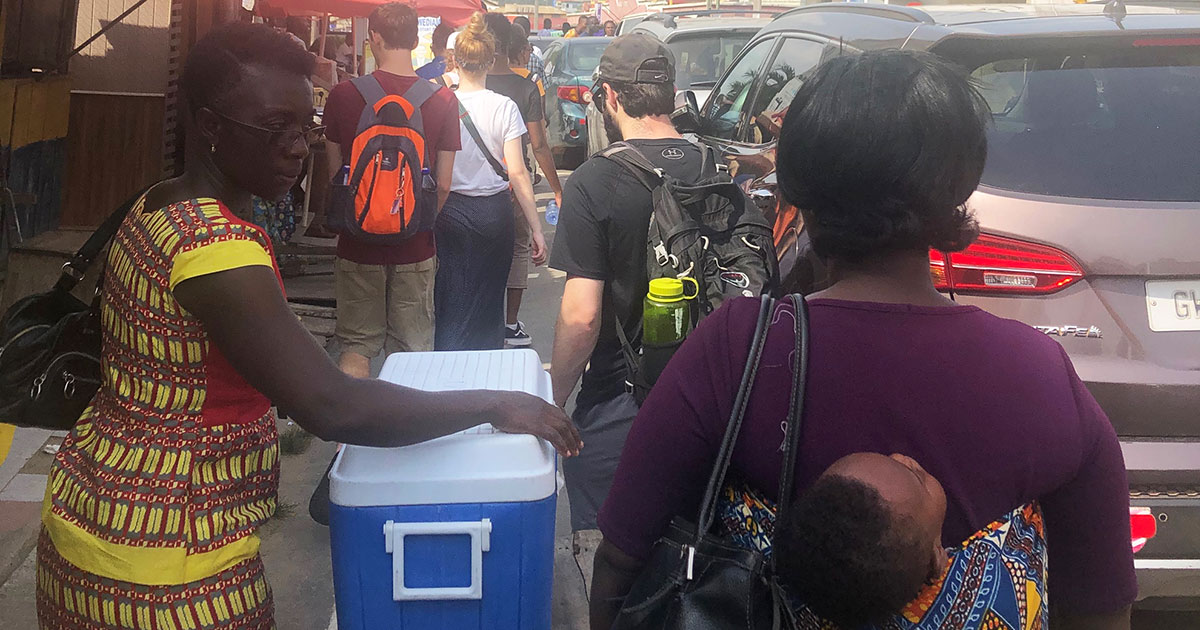
On our first day, we visited a technical high school and a college. It was especially interesting to see how civil engineering is taught in Ghana. I found that although their technology and facilities may not be as advanced as ours, their curriculum was still centered around solving the basic problems of building a society’s infrastructure, including waste management, transportation, and effective construction.
We visited an elementary school in a smaller village where we interacted with the children and helped paint some of the walls. The kids were so excited to see us; we got pretty used to being called “obroni” which means “white person” or “foreigner.” Later that day, we traveled to Cape Coast School for the Deaf and Blind. We watched blind people play the drums while deaf children danced to their beat. Afterwards, they taught us one of their traditional dances. Although I felt awkward and silly while dancing, it was amazing to see these people perform, despite their disabilities, and to share their culture with them.
Another service project we participated in was helping to build a vocational center. I mostly helped by raking leaves away from the building site. It felt like we didn’t get very much done, but I learned that had we not helped out that day, those leaves wouldn’t have been raked for another three months. This allowed me to realize that what feels like a small effort can make a big difference in someone else’s life.
Besides volunteering, we also got to experience some of Ghana’s cultural and natural beauty. A major highlight of the trip for me was our outdoor adventures on Saturday. Our adventure began at 5:30 am; we drove out to the forest to watch birds and spot other wildlife. We also walked through farming villages that harvested cocoa, rubber, plantains, and other staple Ghanaian crops. We finished our safari with a hike through the Canopy Forest Walkway at Kakum National Park. Although the footing was treacherous, the view was absolutely breathtaking and worth every step it took to get there.
